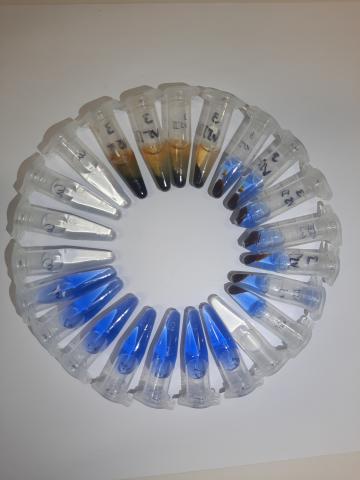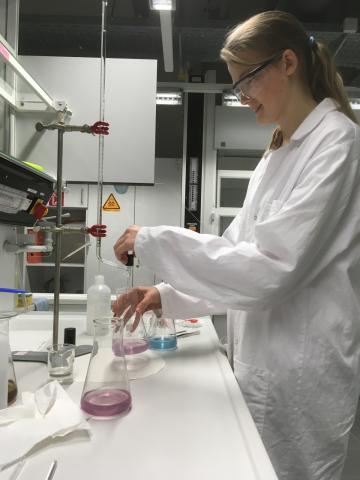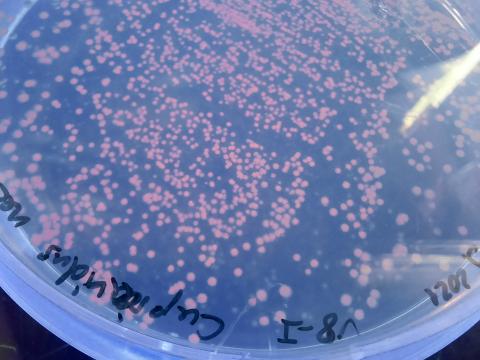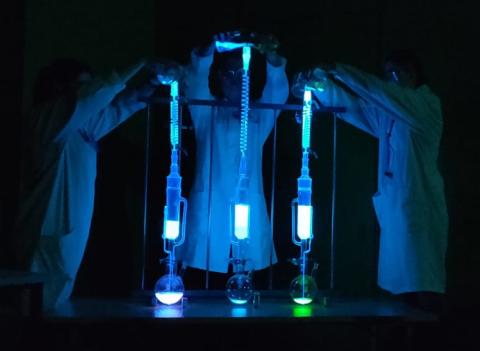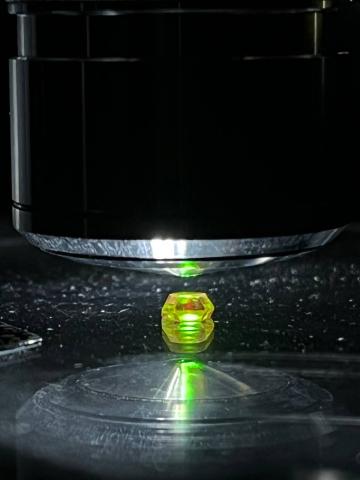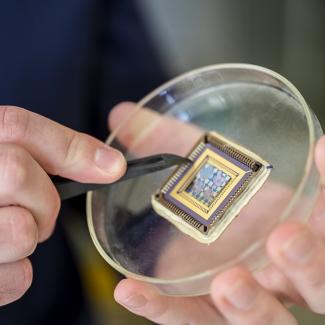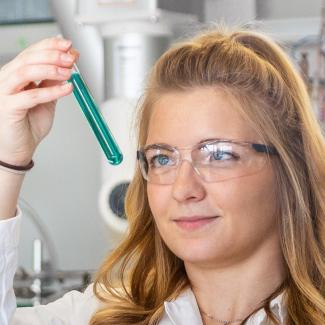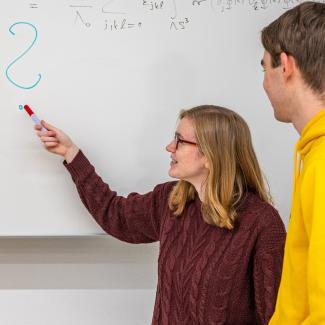Angewandte Naturwissenschaft
Applied Natural Science encompasses the three disciplines physics, chemistry and biotechnology. It combines a broad general education in the field of natural sciences with application-oriented research and teaches interdisciplinary skills and problem-solving strategies.
The program enables students to quickly familiarize themselves with complex interdisciplinary topics and recognize causal relationships. In later professional life, the knowledge acquired can then be easily applied to a variety of other problems.
The Master's degree programme is specialized and research-oriented and allows students to specialize in the fields of solid-state physics and environmental science/ biotechnology. Throughout the degree programme, the development and training of both theoretical and experimental skills and knowledge are equally promoted.
Please note that the main language of the program is German. However, the specialisation "Electronic structure theory of materials" is taught predominantly in English. To achieve the required language level, you can enrol and participate in the German language courses. Otherwise, you can choose one the English Master's study programs.
Specialisations
Environment-Biotechnology-Analytics
Focus on aspects of biotechnology, microbiology, biochemistry, bioinformatics, ecosystems, environmental chemistry, modern analytical chemistry, and bioanalytics
Solid state physics
Focus on semiconductor physics and chemistry, solid state physics of modern materials in energy systems, nanomaterials, laser physics and physical chemistry
Semiconductor technology and photovoltaics
Focus on mikro- and nanoelectronic devices, materials and systems for energy conversion and storage, physical concepts and industrial technology of photovoltaics
Electronic structure theory of materials
Focus on molecular modeling and density functional theory, quantum chemistry, artificial intelligence, many body theory, machine learning
- Faculty
-
Faculty of Chemistry, Physics and Bioscience (Faculty 2)
- Degree
-
Master of Science (M. Sc.)
- Standard period of study
-
4 Semester
- Part-time possible
-
Yes
- Start of studies
-
Winter semesterSummer semester
- Admission requirement
-
Bachelor's degree in applied science or related disciplines
- Course language
-
German
- Research and Development in semiconductor industry like Bosch, FCM, Global Foundries, Hanwha QCells, Infineon, Intel, Meyer Burger, Siltronic, TSMC, X-FAB etc.
- Small and medium-sized enterprises: Production and services in scientific and technical fields.
- Research, development and management: In particular, interdisciplinary basic and applied research in physics, chemistry, biotechnology, pharmacy, life sciences and materials sciences
- Clinics, laboratories, research institutes like Max Planck, Fraunhofer, Helmholtz or Leibniz, large-scale research facilities
- Large-scale industry: In interdisciplinary areas such as environmental protection, sales, public relations, patenting
Why study Applied Natural Science at TUBAF?
If you are interested in interdisciplinary concepts and challenges, but still want either biotechnology, solid state physics or semiconductor physics to be „your“ area of thorough expertise – TUBAF offers you a study program in Applied Natural Sciences that is unique in Germany! Here you can acquire a profound scientific understanding of the great challenges of our time - from energy generation, storage and conversion to nano- and microelectronics and biotechnology. And all of this in a family atmosphere with ideal supervision conditions.
Requirements for the study program
You will be admitted to the Master’s program Applied Natural Science if you have a Bachelor's degree in Applied Natural Science or some equivalent university degree. At least 60 credit points (ECTS) in relevant areas of physics, chemistry, bio sciences, mathematics or engineering should have been achieved.
Interests and skills you should bring along
- Interest in all natural sciences: biology, physics and chemistry
- Interest in interdisciplinary or multidisciplinary topics
- fundamental mathematics familiarity
What Alumni say
During the NAT studies, you engage with various and constantly changing subject areas. This allows you to build up a very broad range of knowledge. This dynamic education prepares you optimally for research and industry-related professions.
Dr. Patrick Hofmann - Development engineer at Freiberger Compound Materials GmbH
The "Applied Natural Sciences" course is very diverse and varied. The combination of scientific disciplines gives you a broad basic education, which is then closely aligned with application in the specializations. The interdisciplinary approach prepares you very well for working in interdisciplinary teams in science, but also in an industry-related environment.
Dr. Friederike Zimmermann - Research assistant at NaMLab gGmbH in Dresden
A degree course that teaches the basics of chemistry, biology, physics and math. So I didn't have to decide on a subject straight away. In addition, the TU Bergakademie has a good reputation in terms of the supervisor-to-student ratio and the chance of good laboratory places.
Dr.-Ing. Caroline Hommel - Research assistant at the Center for Quantum Nanoscience in Seoul, South Korea
For the latest insights into studying here, visit the Instagram channel of the Faculty of Chemistry and Physics: @tubaf_nat


